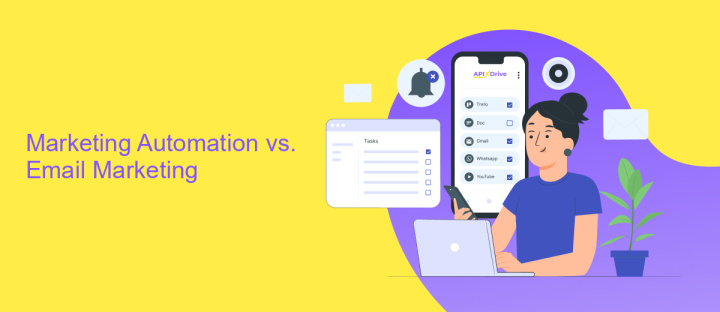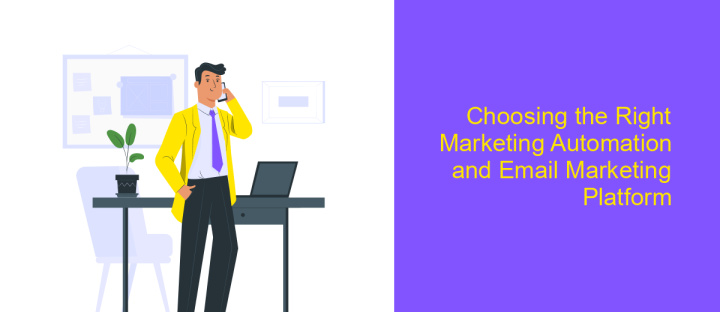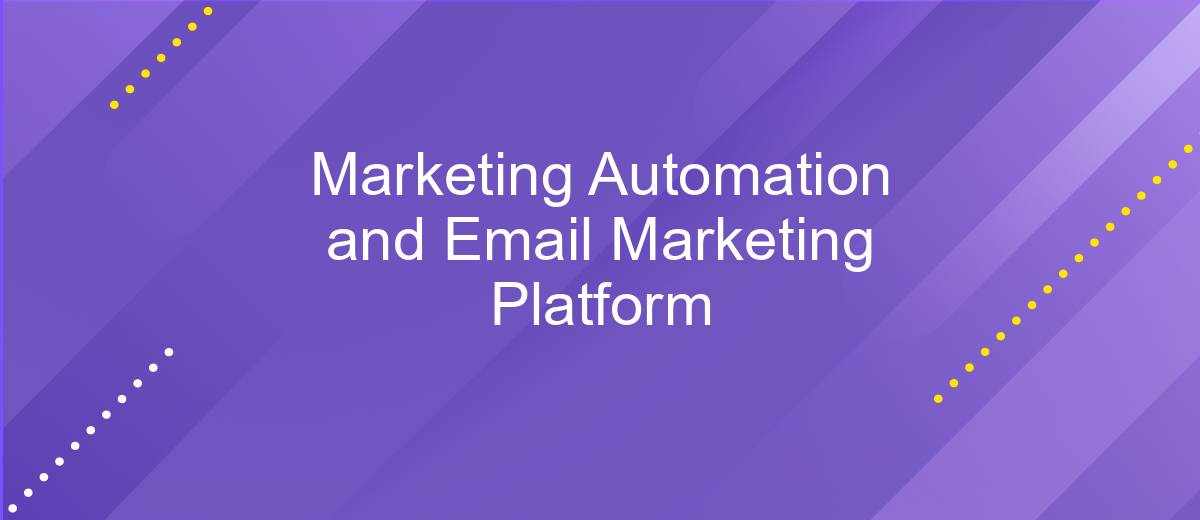Marketing Automation and Email Marketing Platform
In today's fast-paced digital landscape, marketing automation and email marketing platforms have become essential tools for businesses aiming to streamline their marketing efforts and enhance customer engagement. By leveraging advanced technologies, these platforms enable personalized communication, efficient campaign management, and insightful data analysis, ultimately driving higher conversion rates and fostering stronger customer relationships. Explore how these innovations can transform your marketing strategy.
Introduction
In today's fast-paced digital landscape, businesses are constantly seeking innovative ways to engage with their audience and streamline their marketing efforts. Marketing automation and email marketing platforms have emerged as powerful tools that enable companies to optimize their marketing strategies, enhance customer relationships, and drive revenue growth. By automating repetitive tasks and personalizing communications, these platforms offer a myriad of benefits that can significantly impact a company's bottom line.
- Increased Efficiency: Automate routine tasks to save time and resources.
- Personalized Campaigns: Tailor messages to individual customer preferences.
- Improved Analytics: Gain insights into campaign performance and customer behavior.
- Scalability: Easily manage and scale marketing efforts as your business grows.
- Enhanced Customer Engagement: Foster stronger relationships through targeted communication.
As businesses continue to navigate the complexities of the digital age, the adoption of marketing automation and email marketing platforms is becoming increasingly essential. These tools not only help in executing more effective marketing campaigns but also provide valuable data that can inform strategic decisions. By leveraging the capabilities of these platforms, companies can achieve greater efficiency, improved customer engagement, and ultimately, sustained growth.
Marketing Automation vs. Email Marketing

Marketing automation and email marketing are often confused, but they serve different purposes. Marketing automation encompasses a broader range of activities, including lead nurturing, customer segmentation, and campaign management across various channels. It allows businesses to automate repetitive tasks, track customer behavior, and personalize marketing efforts on a large scale. For instance, platforms like ApiX-Drive can seamlessly integrate different marketing tools, making it easier to manage and synchronize data across various systems.
Email marketing, on the other hand, is a subset of marketing automation focused solely on email campaigns. It involves creating, sending, and analyzing email communications to engage with customers directly. While email marketing can be highly effective for targeted communication, it lacks the comprehensive capabilities of marketing automation. By integrating email marketing into a broader marketing automation strategy, businesses can achieve more cohesive and efficient marketing efforts, leveraging tools like ApiX-Drive to streamline workflows and improve overall effectiveness.
Benefits of Integrating Marketing Automation and Email Marketing

Integrating marketing automation with email marketing offers numerous advantages for businesses looking to enhance their marketing efforts. By combining these two powerful tools, companies can streamline their processes, improve customer engagement, and boost overall efficiency.
- Personalization: Automated systems can segment audiences and deliver personalized content, increasing the relevance of emails and improving customer experience.
- Efficiency: Automation reduces manual tasks, allowing marketing teams to focus on strategy and creativity rather than repetitive tasks.
- Analytics: Integrated platforms provide comprehensive analytics, helping businesses understand campaign performance and make data-driven decisions.
- Scalability: As your business grows, automated systems can easily scale, handling larger volumes of emails without additional resources.
- Consistency: Automation ensures consistent messaging and timing, maintaining brand integrity across all communication channels.
Overall, the integration of marketing automation and email marketing empowers businesses to deliver more effective campaigns, foster stronger customer relationships, and achieve better results. This synergy not only enhances productivity but also drives growth and profitability in the long run.
Choosing the Right Marketing Automation and Email Marketing Platform

Choosing the right marketing automation and email marketing platform is crucial for the success of your campaigns. The right tool can streamline your processes, enhance customer engagement, and provide valuable insights. However, with so many options available, making the right choice can be overwhelming.
First, identify your specific needs and goals. Are you looking for advanced analytics, seamless CRM integration, or robust email templates? Understanding your requirements will help narrow down your options. Additionally, consider your budget and the scalability of the platform as your business grows.
- Ease of use and user interface
- Integration with existing tools and systems
- Customer support and training resources
- Customization and personalization features
- Pricing and contract flexibility
Take advantage of free trials and demos to explore different platforms. This hands-on experience will give you a better understanding of the tool's capabilities and help you make an informed decision. Remember, the right platform should align with your business objectives and enhance your marketing efforts.


Conclusion
In conclusion, the integration of marketing automation and email marketing platforms is essential for businesses aiming to streamline their marketing efforts and achieve higher engagement rates. By automating repetitive tasks, marketers can focus on creating personalized content that resonates with their audience, ultimately driving conversions and fostering customer loyalty. The use of advanced analytics and segmentation tools further enhances the effectiveness of these campaigns, allowing for more precise targeting and improved ROI.
Moreover, integrating these platforms with other business tools is crucial for a seamless workflow. Services like ApiX-Drive facilitate these integrations by connecting various applications and automating data transfers, ensuring that all systems work harmoniously together. This not only saves time but also reduces the risk of errors, making it easier for businesses to manage their marketing activities efficiently. As the digital landscape continues to evolve, leveraging such technologies will be key to staying competitive and achieving long-term success.
FAQ
What is marketing automation?
How can email marketing platforms benefit my business?
What are some common features of marketing automation platforms?
How do I integrate my marketing automation platform with other tools?
What are the key metrics to track in email marketing?
Routine tasks take a lot of time from employees? Do they burn out, do not have enough working day for the main duties and important things? Do you understand that the only way out of this situation in modern realities is automation? Try Apix-Drive for free and make sure that the online connector in 5 minutes of setting up integration will remove a significant part of the routine from your life and free up time for you and your employees.

